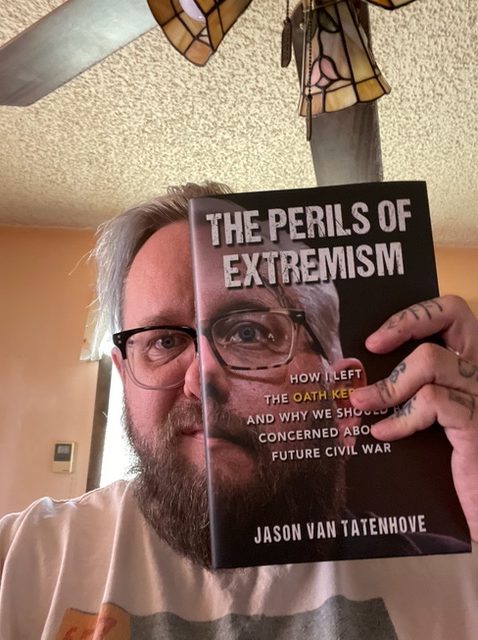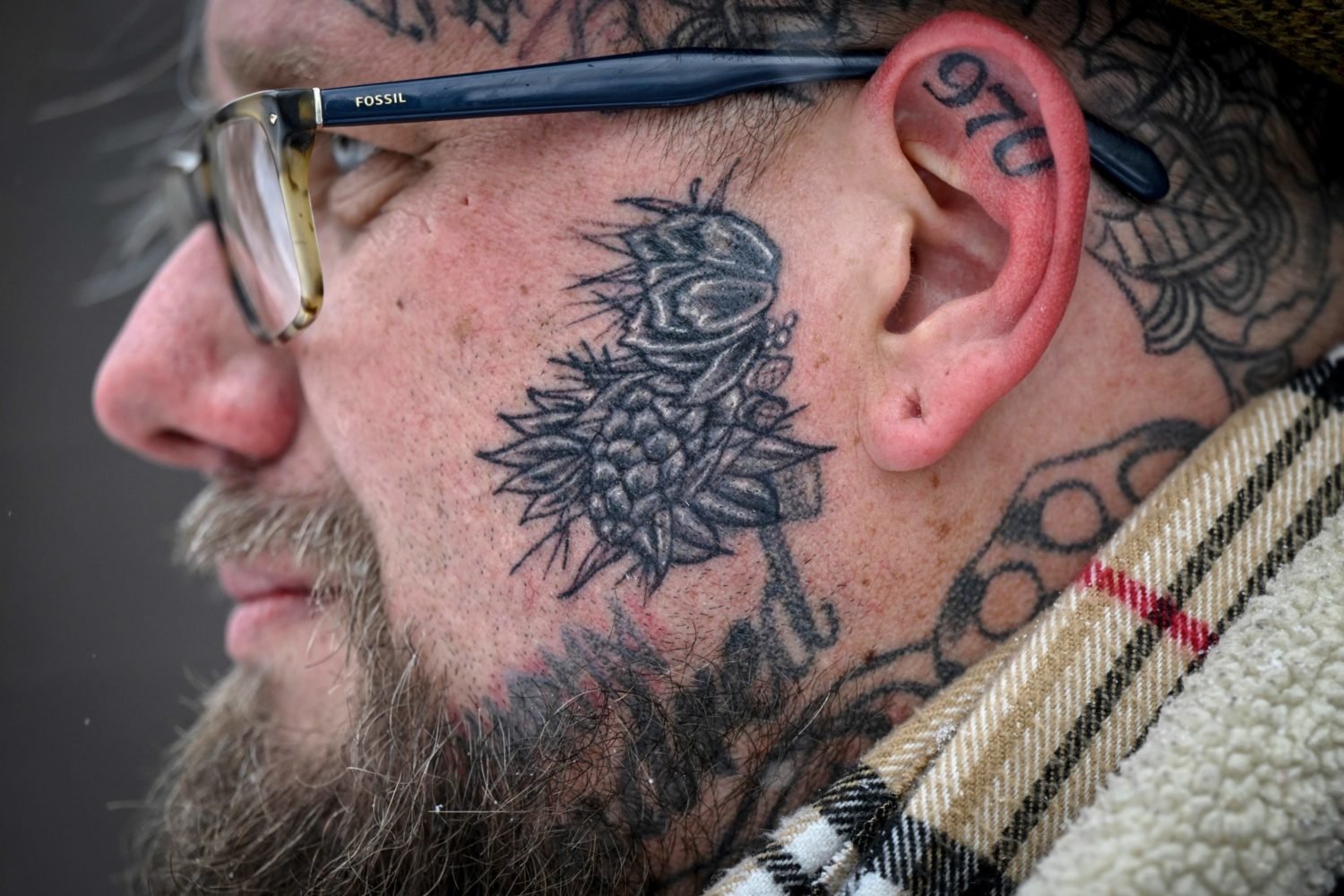Jason Van Tatenhove became the national spokesman for the Oath Keepers (the anti-government militia implicated in the January 6 attack on the Capitol) in 2015, walking away from the group a year and a half later. His book about the experience, The Perils of Extremism: How I Left the Oath Keepers and Why We Should be Concerned about a Future Civil War, came out last month. “I drank the Kool-Aid and I became more radicalized over time,” Van Tatenhove told me last fall, when I was reporting on his time with the Oath Keepers. I recently caught up with Van Tatenhove to discuss his book, the recent conviction of Oath Keepers founder Stewart Rhodes, and how to address the threat of anti-government extremism.
What was your goal in writing the book?
When I first started this crazy misadventure with the Oath Keepers, I was thinking [I would write] this generation’s version of [Hunter S. Thompson’s book] Hells Angels. I just figured it was going to be this kind of unique view of these historic events that were happening that started with the [2014] Bundy ranch [standoff]. Then I got sucked into things. I had no idea it was going to lead to me becoming the national media director [of the Oath Keepers]. Then I just was looking to get out [of the Oath Keepers] and keep my head above water. I started writing for the local newspaper. I really began thinking about how I’d had this period of a year and a half with this organization that has gone on to storm the Capitol. And while there have been books written about [the Oath Keepers] from professors in ivory towers, there really wasn’t a regular guy’s view from the inside.
Have you received any threats from current or former Oath Keepers on account of the book?
Not yet. I really have taken steps to safeguard my family and myself. I change my [phone] number every few months. I’m no longer on social media at all. I’ve kind of really insulated myself as much as possible.
Your former boss, Oath Keepers founder Stewart Rhodes, was found guilty of seditious conspiracy last fall. What’s your reaction to that?
He kind of had it coming. He kept pushing and kept pushing, and when you get to the point where you’re helping to facilitate a violent coup attempt to dismantle our democracy, there has to be some recourse for that. Because otherwise, we descend into anarchy. Watching January 6 and watching all of it kind of makes me sick to my stomach because I had a part to play in that. I’m doing my best to counteract that now and really look at ways that I can get to a better place.
What advice do you have for local or federal policymakers in the DC area who are looking to address the threat of anti-government extremism?
I think we need to look at things in the short term—kind of stopgap measures—and then we also need to look at things on a longer timeline. The stopgap things are more immediate. They’re like band-aids. We’ve got to perform our national first aid, which includes holding people, specifically in the leadership [of extremist groups], to account because that largely hasn’t happened up until now.
But more importantly, I think we need to look at longer-term approaches and really break down what has been happening. I think we’ve really been in a war of mythologies, a war of storytelling. We explain the world to each other through stories. We seem to be biologically hardwired to respond to storytelling. And I think, whether it was intentional or just stumbled upon, storytelling has been weaponized by extremists. I’ve come to this conclusion [because I was] part of [an extremist] propaganda machine that keyed into this.
In my thinking, a lot of this starts with the storytelling, whether that be Alex Jones telling a story about a pedophile cabal that is peddling children through pizza shops, or it could be a story like Star Wars. These stories have such an impact on us as a culture. But by [telling the stories about ourselves and our country] with real information and human compassion and the moral character that we want to see in our United States and the world we want our children to inherit, that can have an impact. We can really use it to get to a better place and become architects of a [better] future.


![Luke 008[2]-1 - Washingtonian](https://www.washingtonian.com/wp-content/uploads/2017/10/Luke-0082-1-e1509126354184.jpg)














